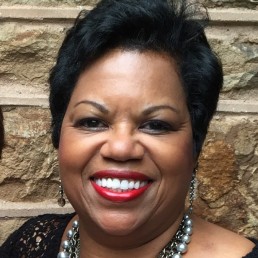By Sheryl Hilliard Tucker
In September 2020, The Board Challenge launched a national movement with a clear and compelling mission: Improve the representation of Black directors in the boardrooms of U.S. public and private companies.
More than 75 companies, business leaders and organizations have signed on to make board diversity a business imperative in corporate America. To date, 18 Black directors have been elected to the boards of companies that took The Board Challenge pledge.
On August 6, 2021, the SEC strengthened our movement by approving Nasdaq’s proposed requirement that companies listed on its exchange disclose their board diversity metrics. Equally as important, the rise of board diversity mandates in California, Washington and Illinois are encouraging other states to take legislative action.
Beyond an increased focus on diversifying corporate boards is a renewed effort to improve the quality of board candidates. In fact, Harvard Business Review reported that the bar for “board readiness” has never been higher. “Directors are scrutinized for their ability to understand more complex businesses, demonstrate technical know-how, deliver effective governance, and generate sustainable long-term performance.”
So what’s the best way for Black business leaders to present their true value proposition to board recruiters? Recruitment experts may differ on the specifics, but Nicole Kyner, head of search at The Board Challenge co-founder theBoardlist, a firm that connects exceptional diverse candidates with global board opportunities, summed it up well in an interview with CoveyClub:
Boards are looking for people who can solve the problems their companies are currently facing … Most corporate boards are looking for people with operating experience who have built programs and projects, and know how to lead. However, once you’re on a board, your role isn’t to build and to lead but instead to advise the CEO without telling him or her what to do. “It can be a difficult transition.”
That is why more board recruiters are encouraging director candidates to think differently about how they showcase themselves and their careers when seeking board seats. Recruiters are also encouraging board candidates to keep in mind the type of board they would like to join. Unlike larger company boards, portfolio companies of private equity and venture capital firms may seek board candidates who wish to take on more direct managerial responsibilities.
Regardless, to get the right perception across, board consultant Mark A. Pfister explains that candidates need to “show independent thinking and thought autonomy outside of hierarchical structures”—and “think [strategically] above and beyond tactical.”
Phister recommends candidates present their value proposition by focusing on three main areas: expertise, experience and credentials. Here is a quick summary of Pfister’s advice:
- Candidates should frame their expertise and knowledge areas in ways that will resonate with recruiters looking to fill specific board seats. Also, knowing which board committees they can best support will help recruiters understand a candidate’s value to the board.
- Prospects must do their homework and be able to discuss challenges the board is addressing.
- Experienced directors should clarify their board and board committee experience with succinct examples of successes.
- Recruiters may ask qualified board candidates without board experience to discuss other types of board interactions, such as preparing board reports or making presentations to boards.
- Recruiters want to understand how candidates’ successful projects and programs supported their company’s strategic plan – and how they ensured alignment through proper governance.
- Prospective board directors can enhance their candidacy with board preparation courses offered at a local university or through the National Association of Corporate Directors. Schools such as Santa Clara University offer Black Corporate Board Readiness Programs, and professional associations like the Executive Leadership Council provide these services to their members.
Board recruiters are paying more attention to candidates’ emotional intelligence skills. Pfister and other board experts emphasize that boards need leaders with demonstrated experience building exceptional work teams, enhancing corporate culture and leveraging diversity to grow successful organizations.
If you want more information about positioning yourself for a corporate board or finding great board-ready Black candidates, please contact The Board Challenge at join@theboardchallenge.org.
